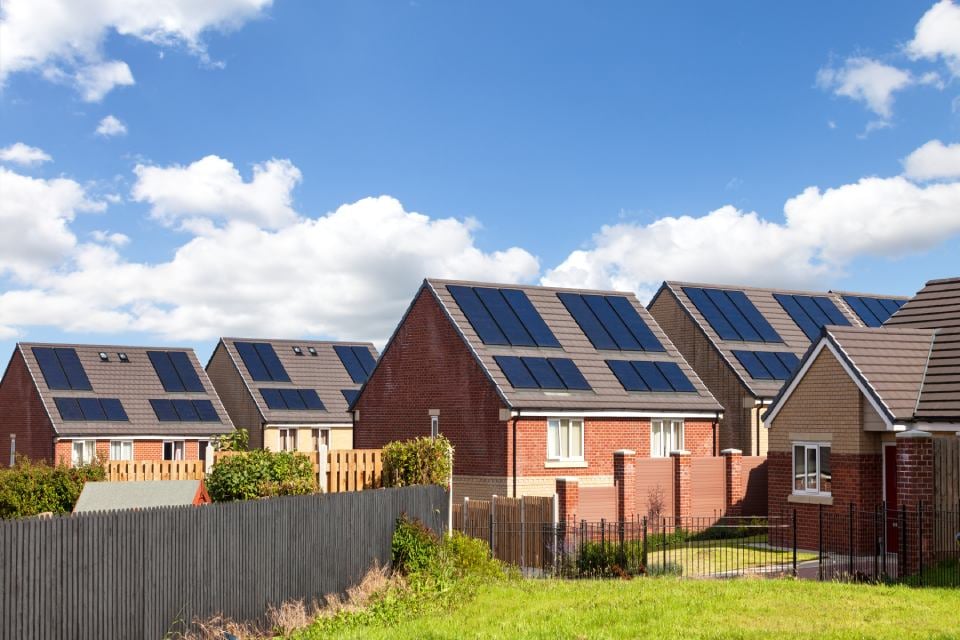
Solar panels and other energy-saving materials are becoming more and more important for creating a more sustainable, resilient, and equitable future. There are several reasons for their growing popularity, including:
- Environmental benefits: Reducing our reliance upon non-renewable energy, reducing our carbon footprint, and mitigating the impacts of climate change.
- Economic Benefits: Solar panels and energy-saving materials can lead to significant cost savings over time. As the cost of renewable energy technologies continues to decrease, they are becoming more accessible and affordable for homeowners and businesses alike.
- Energy Independence: By generating their own energy through the use of solar panels and other renewable sources, individuals and businesses can become less reliant on the electrical grid and, therefore, less vulnerable to power outages and energy price increases.
- Increased Property Value: Properties that have solar panels and other energy-saving features are often more attractive to buyers.
The growing popularity of solar panels and other energy-saving materials means it’s essential to understand how they are treated with regard to VAT if you are a contractor or subcontractor installing them.
The standard VAT rate in the UK is currently 20%, but some goods and services are subject to reduced rates (including 0%) or exemptions. In this article, we will explain how this applies to solar panels, heat pumps and other energy saving materials.
Do you pay VAT on solar panels in the UK?
In Great Britain (England, Scotland, and Wales), from 1st April 2022 up to and including 31st March 2027, solar panels and several other energy-saving material installations are temporarily zero-rated for VAT. This zero rate only applies to installation in residential properties.
Zero-rated goods and services are those that are taxable but at a rate of 0%. After 31st March 2027, this will revert to a reduced VAT rate of 5%. If the energy-saving materials are not supplied by the installer, these materials will be standard-rated for VAT (20%).
Northern Ireland
In Northern Ireland, the incumbent reduced VAT rate of 5% will continue for the installation of solar panels and other specific energy-saving materials. There are some restrictions that apply for installations on residential accommodation. These can be found in the Government’s Energy-saving materials and heating equipment guidance.
VAT on Ground and Air-Source Heat Pumps
Ground-source heat pumps and air-source heat pumps are two distinct types of heat pump systems which harness renewable energy to provide heating.
They are energy efficient and lead to lower carbon emissions. As a result, the government wants to encourage their uptake. That is why there is relief from VAT on the supply and installation of ground-source heat pumps or air-source heat pumps as of Winter 2023. This zero rating applies until March 2027 .
This VAT benefit also includes ancillary work carried out as part of the installation of the pumps – which is zero-rated, providing it is all carried out as a single job.
VAT on energy saving materials (ESM)
The installation of the following items will be zero-rated for VAT in Great Britain until March 31st 2027. After this date, they are set to return to a reduced rate of 5%.
- Solar panels
- Wind and water turbines
- Ground source heat pumps and air source heat pumps
- Insulation materials: Including walls, floors, ceilings, roofs, and pipes, loft insulation, cavity wall insulation, and draught stripping.
- Micro combined heat and power units
- Wood-fuelled boilers
- Central heating and hot water system controls: Such as time and temperature controls, TRVs (thermostatic radiator valves), and smart heating controls.
- Draught stripping and excluders
It's important to note that not all energy-saving materials are zero-rated for VAT, and the eligibility criteria can be complex. You can find more information on the gov.uk website or consult with a member of the Shorts VAT team for advice on specific items.
Northern Ireland
In Northern Ireland, the reduced rate of VAT, not a zero rate, will be applied to all the above items except wind and water turbines. This is subject to either the social policy conditions being satisfied or the 60% threshold not being exceeded. You can learn more about these conditions in the government’s complete guidance.
Key takeaways
The complex rules of VAT in the UK change regularly and, as with solar panels and other energy-saving materials, there can also be differences between the constituent countries of the UK.
It is important to fully understand your VAT status, both to avoid potential penalties resulting from an HMRC investigation and to ensure you are able to claim back the VAT on your costs where applicable.

Lynne Gill
My area of expertise is land and property transactions but I have extensive knowledge of both domestic and international VAT and I love complex VAT queries. I have an Honours degree in Business Studies and a VAT legal and technical qualification from the Institute of Indirect Taxation.
View my articlesTags: VAT
